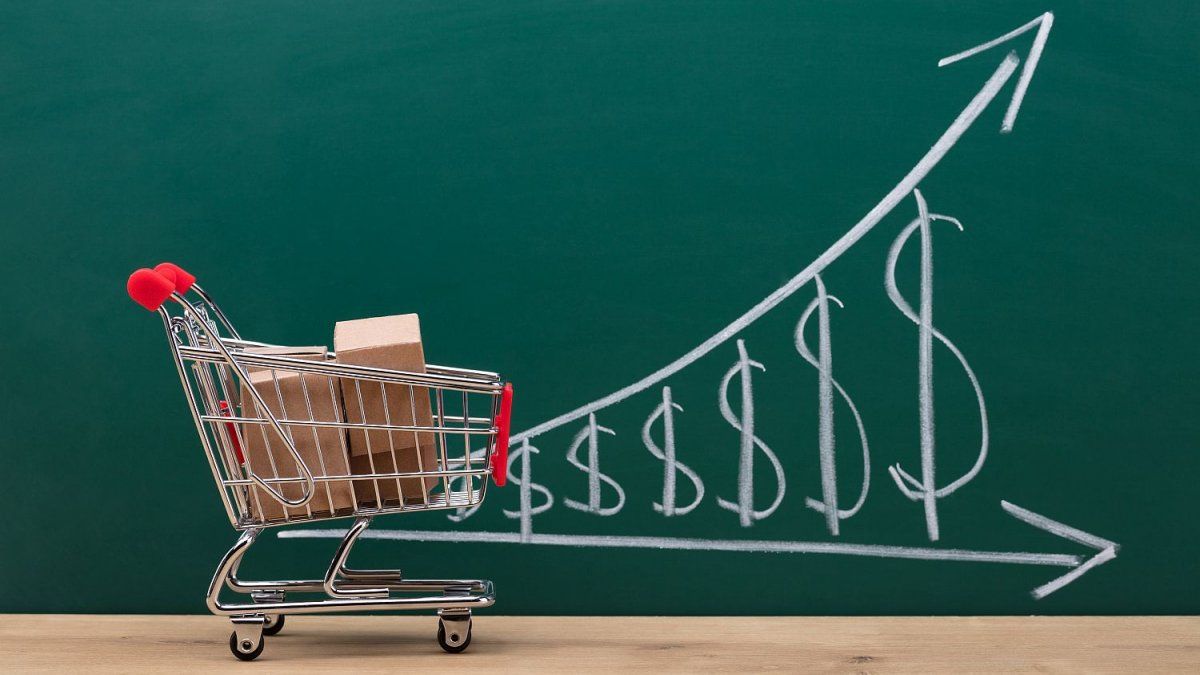The decline in consumption has already taken its first steps. December marked an end of the year marked by a drop in sales in areas such as grocers, furniture, auto parts and roadhouses, in the middle of a summer season that started with difficulties. The drop in sales during the first two months of 2024 is a common forecast for businessmen consulted by Ámbito. They warn that in foods and non-alcoholic beverages it could reach up to 50%.
What President Javier Milei defined as the “last bad drink” of the reforms that he considers necessary for Argentina began. The 118% rise in the exchange rate set the pace for dollarized fuels and inputs, thus overheating the inflationary engine. For the president himself, the result of this combo – an inflation in December estimated at 30% – would be a “numeracy” since, he assured, “we were coming for 45%.”
Meanwhile, the first indicators show the consequence: a decline in consumption. According to the Argentine Confederation of Medium Enterprises (CAME), the Retail sales fell 13.7% annually in December and they closed 2023 with a decrease of 3.4%. In the monthly comparison they decreased 11.2%. “The last month turned out to be the most challenging for the SME commerce sector (…) the market was also not generous in financing options and offers, which forced us to carefully manage the available resources,” indicates the entity.
According to CAME, of the seven items surveyed, Food and drinks leads the fall since sales at constant prices they sank 19.8%. For Fernando Savore, president of the PBA Storekeepers Federation, this dynamic could deepen to 50% during January and February. According to the merchant, summer marks a seasonal decline in vacation consumption, but the context of an incipient recession aggravates the outlook. In turn, the tension between suppliers and businesses It remains in force due to the impossibility of accepting all the increases in the lists: “The merchant’s anger is very high due to the amounts they want us to pay. In addition, merchandise with an expiration date of less than 40 days is being sold, because they are products that were stored to speculate on prices,” says Savore.
Consumption: perspectives in different sectors
The summer break and the time of festivities leads to analyzing food sales in roadside inns. For Atalaya’s Director of Sales and Marketing, Juan Castoldi, there was a big jump in the cost of merchandise referenced in the official dollar, such as coffee, chocolate and packaging. However, he notes in the last month a “slight drop” of 5% compared to the same month of the previous year, after “the uncertainty due to the change of Government”, but also due to climatic issues, since December “was very rainy and not “There were so many spontaneous outings.”
For Mario Gil, head of the production company auto parts Litton Brakes, the start of the season is usually the kickoff to increase activity. This is because December is a month where families typically look to prepare the car to go on vacation. It was not the occasion. The businessman says that until November, consumers sought to cover themselves from the future devaluation by purchasing merchandise, but the following month The devaluation, together with the reduction of payment terms, the distortion of prices and the difficulty of paying for imports caused sales to fall by 25%. “We believe that the same thing will happen as when Prat Gay suddenly devalued, manufacturers will not be able to transfer all the devaluation to prices due to the level of economic retraction. Until now, of the 118% we have only transferred 20%,” warns Gil.
Under that logic, estimates that demand will fall between 15% and 20% in these two months, even maintaining the competitiveness of your company. “People are not going to have money to fix the car,” he laments. In addition, the replacement of supplies is becoming increasingly difficult. According to him, the importers who resell to the industry multiplied their prices by three and a shipment of sheet metal cannot be purchased even with the total billing for the month. “There is a significant drop in sales and profitability and difficulties in sustaining activity. It will bring a very large decrease in productive investments,” warns the businessman.
Juan Carlos Serrano sells furniture and mattresses at Muebles Serrano and, of those interviewed, is the one who marked the worst sales decreased last month, by 50% year-on-year. “And we expected some rebound due to the bonus, but in mattresses we marked this sharp decline,” he admits. For January, he expects “austerity” seeking to “save costs and pay salaries.” Because of the type of products he sells, he understands that they will suffer the cost cuts first. “The credit card margin available for our sector will be minimal, we do not sell essential goods,” Serrano warns.
For this last reason, Fabián Castillo, president of FECOBA, asked the Government to continue the plan Now 12. From Internal Trade they confirm the “Simple Installment” program as of February 1, with a plan of 6 installments without interest and 12 with interest. Furthermore, Castillo highlights that SMEs “are not price makers” and that it is necessary to “open lines of credit to generate greater supply” and thus decompress prices. According to a report from the entity, 60.8% of the businessmen surveyed believe that sales after Reyes “will decrease significantly.” 52.9% maintain that it will be due to the increase in prices they offer and 35.3% due to low salaries.
Source: Ambito




